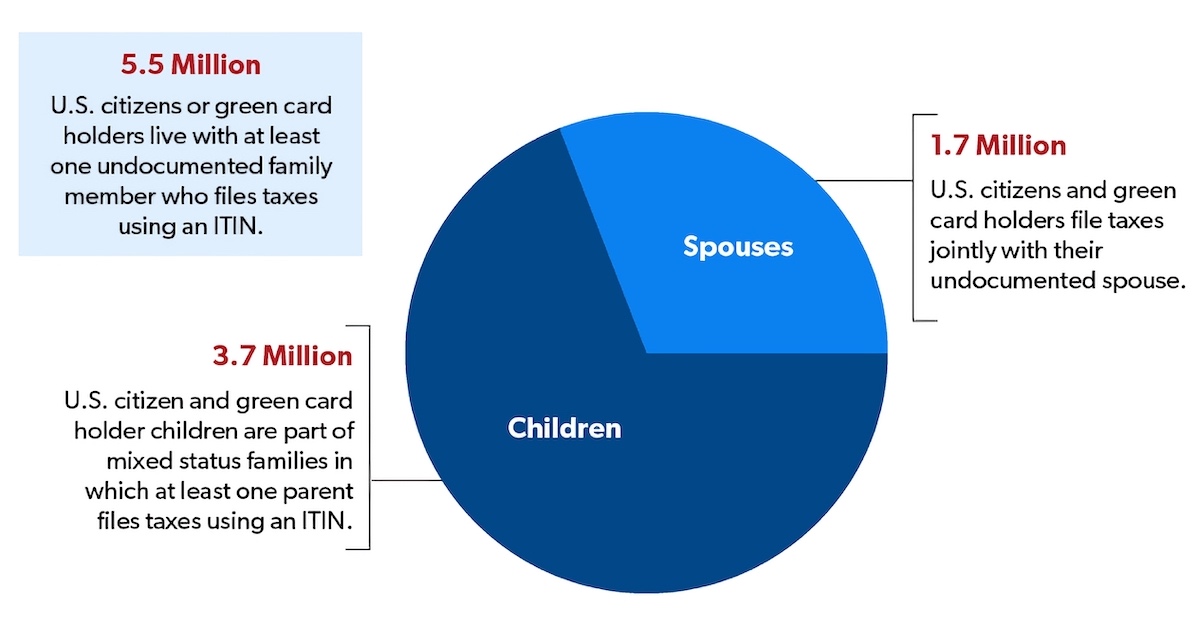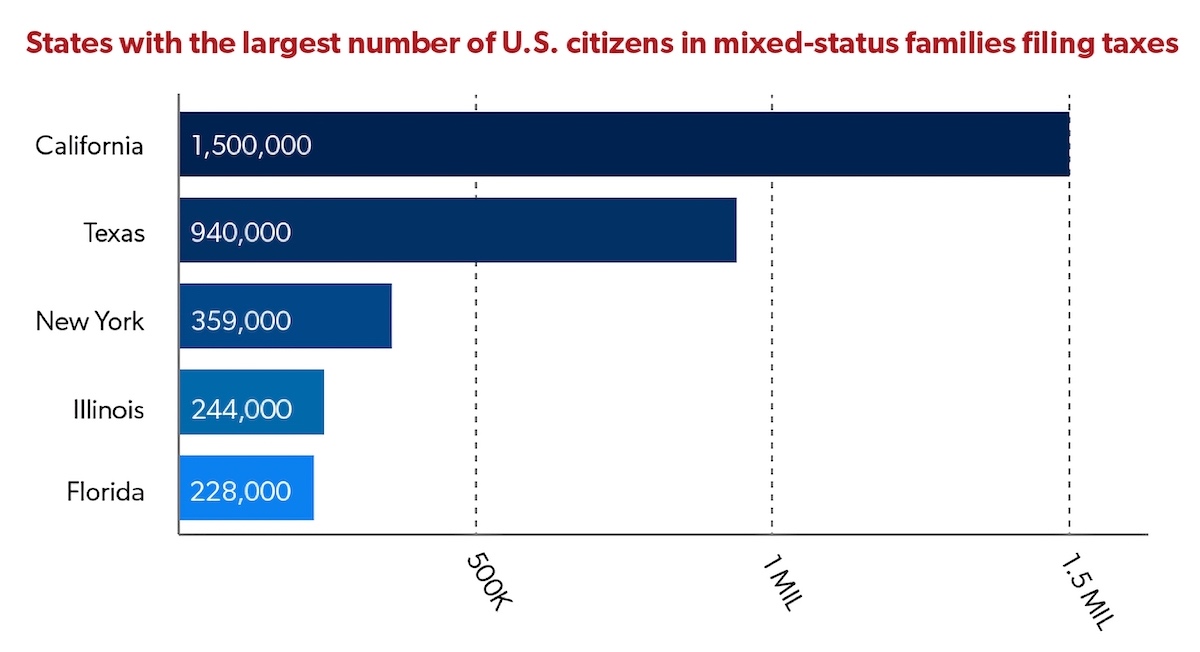Student Blog
Diversity
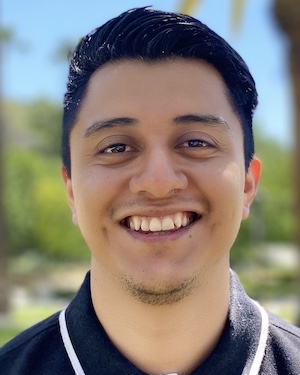
Mixed Status Families ⟩
March 29, 2021, by Daniel
Admissions Classes Diversity Fieldwork Life Hacks
According to the National Immigration Law Center, “a mixed-status family is a family whose members include people with different citizenship or immigration statuses. One example of a mixed-status family is one in which the parents are undocumented, and the children are U.S. born citizens”. The state of California has the largest number of U.S. citizens in mixed status families filing taxes, at 1.5 million people. This is a topic I would like to bring more attention to because many people may come from or know someone from a mixed status family, this includes students at USC and clients seen during fieldwork or residency, and this may not be something that is often brought up in the classroom. Personally, I live in a mixed status family, which includes DACA recipients and people without any documentation, with some extended family having other statuses as well.
Source: Migration Policy Institute, “Mixed-Status Families Ineligible for CARES Act Federal Pandemic Stimulus Checks” (May 2020), migrationpolicy.org/content/mixed-status-families-ineligible-pandemic-stimulus-checks
Source: Migration Policy Institute, “Vulnerable to COVID-19 and in Frontline Jobs, Immigrants Are Mostly Shut Out of U.S. Relief” (April 24, 2020) migrationpolicy.org/article/covid19-immigrants-shut-out-federal-relief
This past year has been really tough financially for my family and me. The multiple stimulus packages that were passed came with a lot of limitations for mixed status families. For example, as a USC student who is undocumented with DACA status, I was unable to apply to the CARES Act financial assistance for college students. After doing some research and waiting for the final relief bills to be amended and passed, I was fortunate to receive the stimulus check because I have a temporary work permit via DACA. However, not all undocumented students are DACA recipients, and many undocumented people did not qualify for anything, even though they pay taxes every year with an Individual Taxpayer Identification Number (ITIN) number. In the last year, I saw many people be excluded from federal assistance simply because of their immigration status, personally at home, with friends, and at residency. My parents and many of my clients in primary care were impacted by the exclusions in the COVID-19 relief bills, including the most recent under the Biden administration.
During this time, many families continue to rely on food banks, are behind on rent, and are surviving on the little help they can get. For example, I helped my parents and some of my clients apply to local and state specific relief programs which provided some financial assistance, but not nearly enough. And for many it’s not an easy process due to technology access, literacy levels, social support, etc. Last fall, I helped my parents write a letter and email it to a rent relief program that provided $500. I was appreciative that non-profit organizations and certain school departments took it upon themselves to be more inclusive and provide some type of financial assistance for students that may have not qualified for the CARES Act. As a current student, I was able to apply for the USC Ostrow Emergency Fund, the USC Graduate Student Government Emergency Assistance, and Immigranted (non-profit organization) for financial assistance to get through the year. Most of that assistance and my stimulus checks went to home expenses that my parents were simply unable to cover.
I believe this is an important discussion we need to have or at least consider in the academic setting and occupational therapy world. As I stated earlier, this impacts students at USC and in the OT programs, as well as clients being seen by occupational therapists/residents and/or fieldwork students. It’s important to consider how students may be navigating their own experience within a mixed-status family or perhaps have family/friends, clients, or colleagues that are experiencing this. As the Chan Division continues to push for more diversity and students from different backgrounds come in, it’s important to consider how prepared we are to support their education and clinical experience within the context discussed above.
No matter your political views, from an occupational therapy lens, we all have a responsibility to promote occupational engagement and occupational justice. This may include supporting clients navigating access to resources. As I found myself doing with my family and clients in primary care, I was that person that supported their own resource seeking as a means for survival during the pandemic. The reality is that not everyone has access to OT services or a family member who can help them seek resources. This is a very complex topic and there are many layers to it, perhaps many terms you may not be familiar with. I am always available for any questions (.(JavaScript must be enabled to view this email address)). I ask you to be open minded and encourage you to have these uncomfortable conversations. It is never too late to start learning and getting involved in the discussion. The COVID-19 pandemic revealed and exacerbated many of the disparities and social inequalities that have been there for many people in the United States, especially the undocumented population. I want to leave you with the questions below to reflect on:
- As a current or future occupational therapist, how are you going to support clients experiencing occupational injustices due to their immigration status?
- How are the needs of students within mixed-status families being met? How can we best support them in reaching their educational and professional goals?
References
Chishti, M., & Bolter, J. (2020, December 11). Vulnerable to COVID-19 and in Frontline Jobs, Immigrants Are Mostly Shut Out of U.S. Relief. Migrationpolicy.Org. https://migrationpolicy.org/article/covid19-immigrants-shut-out-federal-relief
Fact Sheet: Mixed Status Families and COVID-19 Economic Relief. (2020, August 13). National Immigration Forum. https://immigrationforum.org/article/mixed-status-families-and-covid-19-economic-relief
Mixed-Status Families Ineligible for CARES Act Federal Pandemic Stimulus Checks. (2020, December 9). Migrationpolicy.Org. https://migrationpolicy.org/content/mixed-status-families-ineligible-pandemic-stimulus-checks
The Affordable Care Act & Mixed-Status Families. (2017, October 20). National Immigration Law Center. https://nilc.org/issues/health-care/aca_mixedstatusfams
⋯
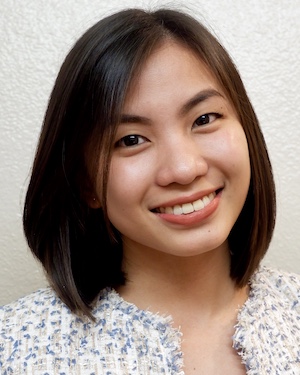
What Made You Decide To Study Abroad? ⟩
March 19, 2021, by Yna
Diversity International
Years ago, when I was still trying to decide whether to stay in my home country or go abroad to pursue a Master’s degree, I employed the usual technique of listing down the pros and cons of each option that I had. It did help a little bit, but what ultimately led me to arrive at a decision was after I asked myself: “What is my goal? What do I want to get out of this?” That’s when I realized that what I was really looking for was something more—an experience that will further strengthen my knowledge and expertise in my chosen field. This is not to say that my education in the Philippines was lacking in any way; I had so much to learn from my university’s rigorous undergraduate program and all its brilliant professors which provided me with the necessary foundations and honed me to be the person that I am. But it is also for this very reason that I found myself with a desire to learn more about how I can apply this knowledge into practice in a manner that will really produce a significant impact to my clients’ lives and even to the larger community.
I was a newly licensed occupational therapist then, barely even worked a year, when I was presented with the opportunity to go to the US. I welcomed the news with both excitement and apprehension, as I was already starting out my career and had all my future plans set out—or so I thought. Making a decision definitely wasn’t an easy feat, with the thought of being separated from my loved ones holding me back the most. Nevertheless, all of my family members and friends were (and still are) very supportive of whatever decision I make—something that I truly appreciate and am very thankful for to this date. As you can tell, I ended up deciding to leave behind the comfortable life that I had for something that’s entirely out of my comfort zone—studying abroad. After performing extensive research about USC Chan and its Post-Professional Master’s program, reading student blogs, consulting various people, I determined that pursuing this road would bring me towards my goal of gaining life experiences that are worthwhile and would add value to my future practice. I felt terrified but at the same time thrilled by the many opportunities that I had imagined this decision would open up for me.
True enough, throughout the time that I have been in the program, I have found myself being the recipient of unique opportunities that I never would have earned in any other place: studying in the #1 ranked OT program in the US, learning from exceptional professors who worked closely with the very people who pioneered OT practice areas such as Sensory Integration and Lifestyle Redesign®, witnessing various breakthroughs in research by many renowned faculty, being part of a supportive community who puts great value in rich perspectives that its diverse students bring to the table, and working as a student ambassador which allowed me to further expand my professional network and enhance a lot of my skills. I put great value in these experiences which is why I feel very satisfied with the choice that I had made back then.
To anyone who is trying to come to a decision on whether to study abroad or not, I unfortunately do not have the answer, but I do have a question for you: What is your goal? I invite you to ask yourself that question that only you could answer, by finding out what you think is worthwhile and in line with what you want to achieve in life.
⋯

Dear MA1 Students, ⟩
February 25, 2021, by Yna
Classes Diversity Getting Involved International Life Hacks
How we were able to create an environment filled with nothing but love and support for each other with the challenges of distant learning is something that I don’t know but I sure am thankful of. It is truly amazing to think about it: how a lot of us haven’t even met each other in person — with some of us even having classes from across the globe — and yet, we are able to touch each other’s lives and share this journey together through shared Spotify playlists, after-class study sessions over Zoom, little fun facts about us that we share with each other, random comments over private chat, or even that simple “we got this, guys!” really goes a long way. Every once in a while, we find pleasant surprises from our little interactions with each other that gradually connect us altogether and make our experience nothing short of amazing. Today, here’s a surprise that would hopefully help you get through stressful times 😊
- “Dear MA1 Students — I was asked to provide some words of motivation for you, but I would like to THANK YOU for motivating and inspiring me! I’m so impressed by the perseverance, creativity, and determination that you have demonstrated as post-professional master’s students. You have accomplished so much already, and I’m confident you will continue to succeed both in the master’s program and beyond. Remember to take some time to celebrate your achievements and use that as motivation to continue the hard work on your journey.”
— Dr. Emily Ochi - “When I was a graduate student, I found this quote that spoke to me and where I was at, at that time . . . in the midst of late-night study sessions, in-between messy relationships, or wrestling with self-doubt. The quote said:
“Today my anthro professor said something kind of beautiful:
‘You all have a little bit of ‘I want to save the world’ in you, that’s why you’re here, in college. I want you to know that it’s okay if you only save one person, and it’s okay if that person is you.’” I share this quote to give you permission (if you needed it today) to remember to take care of yourself at this time. Of course, we have big dreams for you and I deeply believe in this cohort. Each one of you are incredibly hard workers and I always appreciate the perspectives you bring to class, the work you put into being present (on a screen none-the-less!), and the ways you share your understandings of the class content . . . But! I will not encourage you to compromise yourself, in order to “save the world”. Let’s get rid of that notion. You matter, and let’s start there. So please take time for yourself, especially in the middle of the semester like we find ourselves in now, and let us know if or when you need support or just extra kindness that day. You are doing an extraordinary thing, having the bravery to study in a new place and challenging yourself with multiple courses. That is more than enough, and I hope this message finds you on a day where you are believing that you are more than enough too. “Again, we believe in you and are behind you today!”
— Dr. Kelcie Kadowaki - “HI MA1! I know graduate school can be overwhelming but remember, you know more than you think you know and you are exactly where you are supposed to be at this moment in time. Give yourselves a pat on the back for all the hard work you are putting into your growth. Enjoy the process. Lean on each other for support. Be confident. Take a break and of course, stay safe. 😊”
— Macy Peralta - “Dear MA 1 students — It has been such an honor to be your instructor this semester. I look forward to our class because I can sense your intrinsic interest in the material and the ways that you support one another. I love hearing your perspectives as we read qualitative research together! Karin Saric, our librarian, was also very impressed by your thoughtful questions and skillful database searching.
I have been deeply impressed with your resilience, your ability to not only adapt to the remote learning environment but also thrive in this environment. When you had challenges with google drive, you viewed it as an opportunity to learn and grow. 😊 I love that. I hope I can embody this same resilience and adaptability in my own life as well. Thank you for being a part of this class as we learn and grow together.”
— Dr. Tessa Milman - “Do not underestimate a deep breath of fresh air from a place of serenity like from under your favorite tree or feeling the sense of comfort from having a warm bowl of your favorite soup. These kinds of simple activities, when feeling under a lot pressure can allow space for our minds to take a break and maybe even a chance to reinstate a positive attitude. Remember, sí se puede and that your Chan faculty believe in you!”
— Dr. Celso Delgado - “Life often gets overwhelming with so many things to do and so many situations out of our control - especially this year! When I get overwhelmed, I sometimes find it helpful to pause, take some deep breaths, and think about a few things I am grateful for and try to think of a things that I can control, even if it’s something as small as what to eat for dinner or watch on Netflix. And then, when I feel overwhelmed again, even if it’s just 5 minutes later, I try not to just acknowledge that sometimes, situations really are overwhelming! (And, around this time in spring semester is usually one of those times, pandemic or not!). As your professors, we want you to know that we are so proud of each one of you for taking the big step of being in this program, engaging and showing up for your classes, and doing your best during this hard time so that you can ultimate be the best OTs and help others as much as possible. We hope you take time to take care of yourselves, and hang in there — it will get better. 😊”
— Dr. Sook-Lei Liew - “Sometimes, it helps to remember that in the end, we write our own stories. We can be crushed by some unfairness or a failure, or consider these to be the building blocks for future success, as opportunities to overcome, grow, and inspire others. And if it is our reactions to our circumstances that define us, then any circumstance met with optimism, gratitude, and humility becomes a success story. We are living through a time when our lives and occupations are especially disrupted. Maybe this trial by fire could be what forges you into a uniquely exceptional generation of OTs, and one that is looked up to well into the future!”
— Dr. Christopher Laine - “I have not failed. I’ve just found 10,000 ways that won’t work.” — Thomas Edison; “The expert in anything was once a beginner.” — Helen Hayes; “You don’t always get what you wish for, you get what you work for.” — Anonymous; “Some people dream of great accomplishments, while others stay awake and do them.” — Anonymous
— Dr. Sharon Cermak - “You’ve all worked so hard to get to this point! Think of all the steps you took to get to this program, including for some of you moving to a whole new country! Keep up the great work and when the road ahead looks difficult, don’t forget to look back and marvel at the road traveled to get here!”
— Ty Kim
While these quotes are directed to MA1 students, I’m sure anyone who find themselves in need of a little bit of motivation could use these too. I hope you enjoyed, and as always, Fight On!
⋯
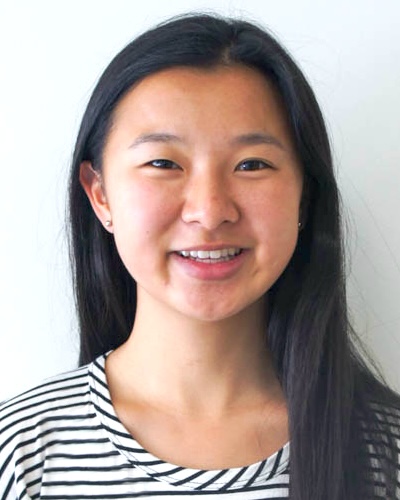
The A-Z’s of USC OT: Part I ⟩
February 24, 2021, by Bethany
Admissions Diversity Externships Getting Involved International
As a Bachelor’s-to-Master’s student, I have been a part of the USC OT community for nearly five years. While learning to call this school home, I have realized that I am so lucky to be where I am. I’ve decided to compile an A-Z list of USC OT attributes that drew me to the program and that I learned as a part of the Trojan Family.
Area — USC is located in the wonderful California city of Los Angeles. Not only can you find a lot of OT volunteer opportunities nearby if you want to check out OT, but you can also drive to the beach, hike to the Hollywood sign, or check out amazing eateries.
Beyond classes — Outside of classes, there are a multitude of student organizations and groups that allow students to encourage growth within the school and also growth in the community we serve.
Creativity — Creativity is so integral to occupational therapy that we have an entire Foundations course on creativity. Not only do we look at crafts occupations, but we use creativity to find new ways to approach and solve problems with engaging in these occupations.
Diversity — Our division places a high value on representation from people of all different backgrounds. Whether it be looking at ethic diversity in admissions, gender representation in OT, or even diversity in ages and stages of life, our students and faculty are open to difficult and perspective-building discussions.
Early Level II — Some OT schools have classwork first and both Level II Fieldwork placements after. But we have our first placement the summer in between academic years, getting to bring our fieldwork experience into our final year of classes to build on that new understanding.
Finances — Funding school can be a difficult discussion. The division offers their own scholarships and financial aid resources. In addition, USC has resources for their students and scholarships through the university itself and other organizations.
Global — Students can expand their global perspective by planning an externship abroad. Or we can increase our understanding of OT around the world through our very own Global Initiatives program!
Hands-on — Whether in labs or in fieldwork or even in practice activities in lectures, I have been grateful for learning-by-doing opportunities. Now in fieldwork, I can see how small activities that we may have done in class can be used with my clients.
Interdisciplinary — We study how OT fits with other health professions, such as PT and social work. Students can also take advantage of other incredible programs at USC by taking electives in other schools, such as the Davis School of Gerontology, the Marshall School of Business, or the Rossier School of Education.
Jobs — There are good job prospects in OT, as it is a quickly growing field. You can also pick up a student worker position while in school, like my job as a student ambassador.
Knowledgeable professors — Our professors are open to talking about coursework and the OT field outside the classroom. They work with us to make sure that we can get a full experience, working with different accommodations needed and through different life circumstances.
Lifestyle Redesign — Lifestyle Redesign was created at USC. Students can both learn about a unique framework and experience it, too. Our faculty practice offers services to students who can experience Lifestyle Redesign and its impact on their lives and occupations as students.
Mental health — This is an area of OT that is not often given enough space, but here, it has its own immersion. After this class, I was more open to the idea of mental health and how occupational therapists can impact mental health and therefore performance in occupations.
New perspectives — In our classes, we discuss how different people would approach different cases and how our various perspectives can be expanded through others’ experiences. We learn from each other to expand our own creative thinking.
Stay tuned for Part II. 😊
⋯
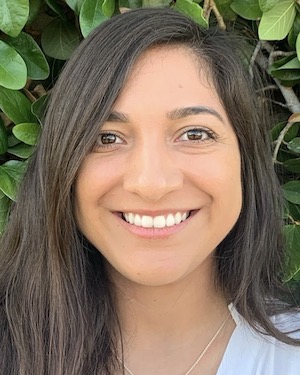
Imposter Syndrome: Undergrad Edition ⟩
February 10, 2021, by Liz
Admissions Diversity
As I’ve mentioned before, one of the best parts of being a student ambassador is connecting with students—students that have been recently admitted, students interested in applying, and current students. Last night I had a video call with a recently admitted student, and they asked me something that really stood out to me. She asked me about imposter syndrome, but it wasn’t about how I related to it as a person of color. It was about how I felt when I was first admitted coming from Cal State Fullerton. Now, this person did not mean to make Cal State Fullerton sound inferior to other campuses and I certainly have nothing negative to say about CSUF at all. But, I thought it was a great question.
I remember being very proud and excited when I first received my acceptance letter to the program. But, as summer slowly approached, I started to worry about whether or not I would be just as “smart” or just as “prepared” as all of the other students in my class. I didn’t mean to doubt myself or feel as though I was competing with everyone else, but I just wanted to be good enough and feel like I deserved to be there.
On the first day of class, we all introduced ourselves. The faculty put together a PowerPoint that stated what our names were, our hometown, and the universities we attended. My last name begins with an R so you can only imagine how nervous I felt as they went through everyone leading up to my turn. As people walked up to introduce themselves, I saw UCLA, UC Berkley, San Diego State, UC Davis, USC, Chapman—all of these highly respected universities on people’s slides. And again, I don’t mean to say CSUF is any less than these institutions, but the schools on those slides definitely come with a reputation of being some of the best. It took some time for me to feel confident and know that I was just as good a student as everyone who came from these other highly respected schools. I have to say that everyone in my classes has had amazing ideas and thoughts to share these past two years—people from divrse backgrounds who’ve attended different universities.
That’s the point I hope to get across with this post. It’s completely normal to feel nervous and scared that you may not be as good as everyone else around you in class. I’m sure everyone that gets admitted feels this in some way! But, I want you to know that you deserve to be here and there’s a reason you were admitted and it’s because the admissions team saw something in you that made them believe you would be a great OT. That’s the great thing about the holistic admissions process. There’s bright people on every campus and we want people with different backgrounds to share their experiences in the classroom. I also thought this was something that students who are currently at community colleges could relate to as well. Continue to push yourself and work towards getting that bachelor’s degree in order to one day apply for OT school!
At the end of the day, we’re all working towards being occupational therapists. You’ll get a chance to develop your clinical reasoning skills and discover your therapeutic use of self along the rest of your peers. We’re all on this journey together. So, congratulations to all those students who just recently got admitted into our program. Take some time to celebrate all of the hard work you did to get here. And if you’re still preparing to apply or try again, you also got this! As always, feel free to shoot me an email if you would like to chat more about this or anything at all. Fight on!
⋯






